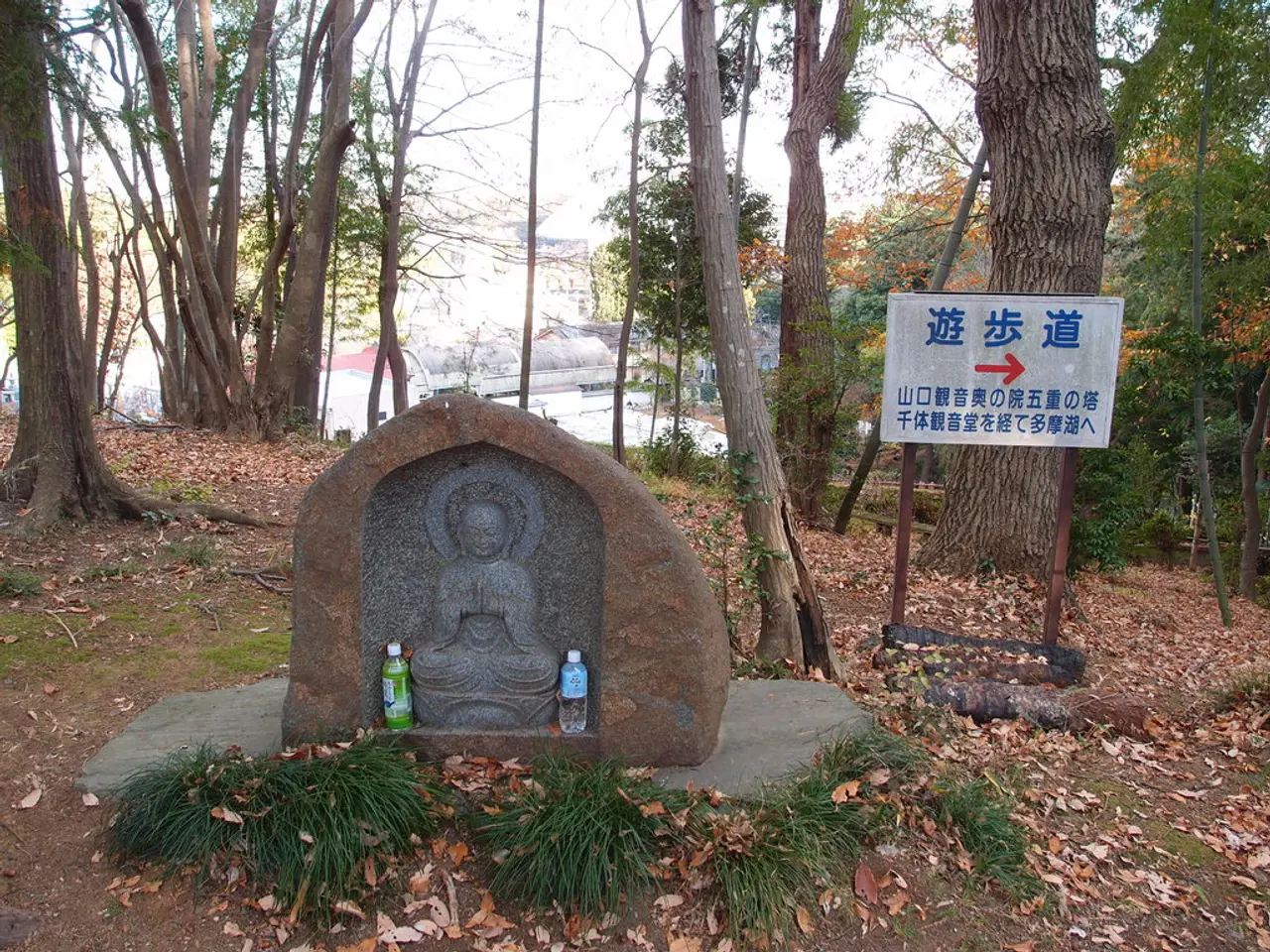"Sebastian Kneipp is my deep-rooted interest"
Sebastian Kneipp, a German Catholic priest from Bavaria, is renowned as the "herbal priest" and the "water doctor" for his groundbreaking work in natural medicine, particularly hydrotherapy. Born in 1821, Kneipp's life and work have left a lasting impact on the world of health and wellness.
Kneipp's journey began in a humble family of weavers, with a dream of joining the clergy. He eventually became a pastor and, faced with his own health struggles, found relief through immersion in cold water and natural remedies. This personal experience inspired his holistic approach to treatment, which emphasized balance and prevention rather than solely medication.
Kneipp's methods, known as the "Kneipp Cure," combine cold water treatments, herbal remedies, diet, and outdoor exercise to promote health and healing. His teachings gained such renown that they influenced the founding and spread of naturopathy, particularly in the United States. Figures like Benedict Lust promoted natural therapies, including water cures based on Kneipp's principles.
Water therapy, including hydro and balneo therapy, is a central element of Kneipp's approach. Known for his cold water applications, such as water treading, arm baths, and alternating showers, Kneipp's methods stimulate the immune system and improve circulation. However, it's important to note that openness is necessary when applying Kneipp's teachings, as they work independently of personal beliefs.
Kneipp also emphasized the importance of movement, encouraging various forms of exercise tailored to individual needs. A balanced and varied diet was another crucial aspect of his holistic approach. Mental well-being, living in harmony with oneself and nature, balance, and social belonging were important aspects of Kneipp's lifestyle approach.
In recent years, the idea of living in harmony with nature, as advocated by Sebastian Kneipp, has taken on renewed significance. With massive species extinction and increasing environmental pollution, this concept has not gained enough attention. It is essential to tailor Kneipp applications to the individual and consider all five pillars when addressing specific complaints or diseases. It is recommended to consult a treating physician or naturopath for advice.
Today, Kneipp's approach to health and well-being remains modern and relevant. His teachings continue to influence wellness practices, with places like Bad Aussee, Austria, still practicing "Kneipp Cure" therapy involving cold-water treatments and holistic lifestyle changes. In 2010, a foundation professorship was established at Berlin's Charité to research Kneipp's health teachings as part of complementary medicine.
In conclusion, Sebastian Kneipp is historically significant for founding a comprehensive natural therapy system that integrates water therapy with herbal medicine, diet, and physical activity. His work helped catalyse the broader naturopathic movement and continues to influence natural health practices worldwide.
- Sebastian Kneipp's holistic approach to health and healing has left a lasting impact on the industry of health and wellness.
- Kneipp's teachings emphasized balance and prevention, setting him apart from conventional treatment methods that solely rely on medication.
- Kneipp's methods are known as the "Kneipp Cure," a combination of cold water treatments, herbal remedies, diet, and outdoor exercise.
- Kneipp's theories influenced the founding and spread of naturopathy, particularly in the United States.
- Figures like Benedict Lust promoted natural therapies, including water cures based on Kneipp's principles.
- Water therapy, including hydro and balneo therapy, is a central element of Kneipp's approach.
- Kneipp's cold water applications, like water treading, arm baths, and alternating showers, stimulate the immune system and improve circulation.
- It's important to note that openness is necessary when applying Kneipp's teachings, as they work independently of personal beliefs.
- Kneipp also emphasized the importance of exercise tailored to individual needs.
- A balanced and varied diet was another crucial aspect of Kneipp's holistic approach.
- Mental well-being, living in harmony with oneself and nature, balance, and social belonging were important aspects of Kneipp's lifestyle approach.
- In recent years, the idea of living in harmony with nature, as advocated by Sebastian Kneipp, has taken on renewed significance.
- With massive species extinction and increasing environmental pollution, this concept has not gained enough attention.
- It is essential to tailor Kneipp applications to the individual and consider all five pillars when addressing specific complaints or diseases.
- It is recommended to consult a treating physician or naturopath for advice.
- Today, Kneipp's approach to health and well-being remains modern and relevant.
- Bad Aussee, Austria, still practices "Kneipp Cure" therapy involving cold-water treatments and holistic lifestyle changes.
- In 2010, a foundation professorship was established at Berlin's Charité to research Kneipp's health teachings as part of complementary medicine.
- Kneipp's work helped catalyze the broader naturopathic movement and continues to influence natural health practices worldwide.
- Sebastian Kneipp's legacy extends to various sectors, including climate change and environmental science.
- By advocating for living in harmony with nature, Kneipp's teachings have implications for the manufacturing industry and its effects on the environment.
- Mental health is another area where Kneipp's principles can be applied, with a focus on stress reduction and mindfulness.
- Skin care can also benefit from Kneipp's holistic approach, with a focus on natural ingredients and healthy lifestyle choices.
- CBD, a natural compound, has connections to Kneipp's work in herbal medicine.
- In finance, the concept of saving and debt management aligns with Kneipp's emphasis on financial stability and responsible decisions.
- The housing market and personal finance are further realms where Kneipp's teachings can be applied, with a focus on conscious consumption and long-term planning.
- entrepreneurs seeking inspiration for their small businesses might find valuable lessons in Kneipp's emphasis on sustainability, innovation, and community.
- From home-and-garden projects to automotive trends, Kneipp's principles of sustainability and personal well-being can inform diverse aspects of our lifestyle, technology, and the future of smart homes and wearables.




